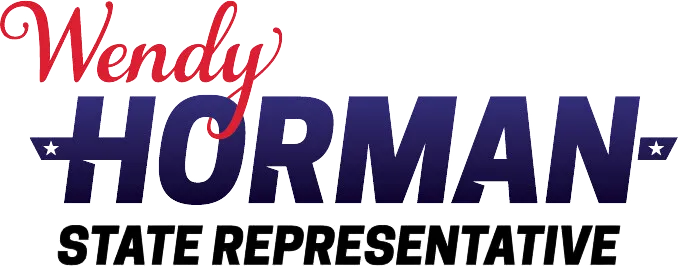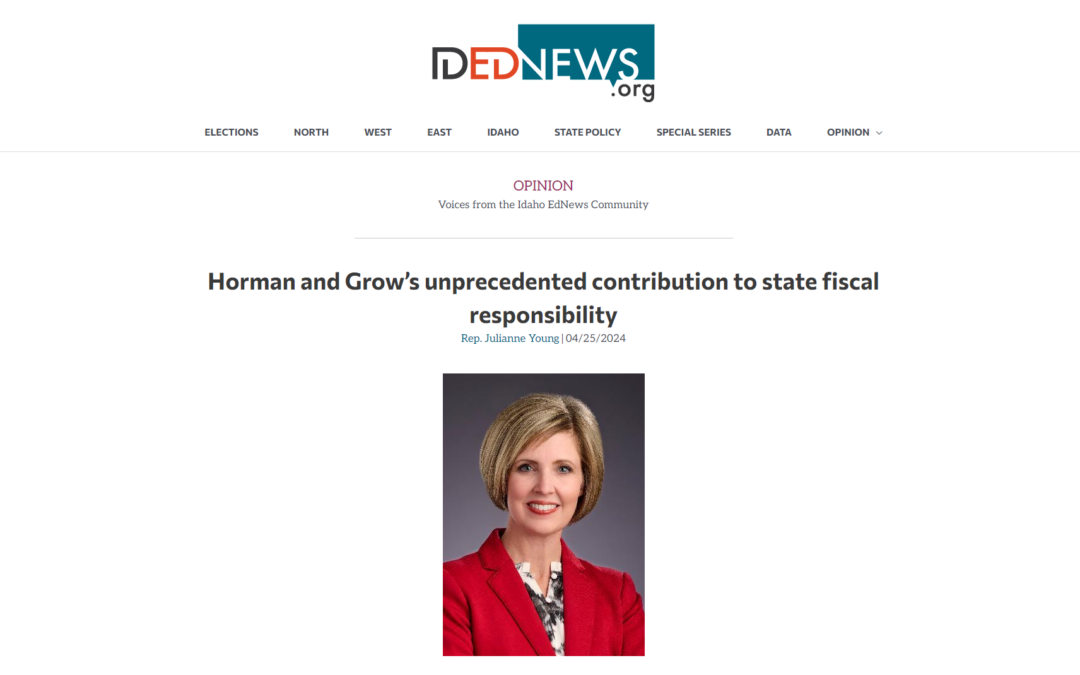I have witnessed unprecedented growth in state spending during my six years of legislative service, from a total budget of $8 billion to $14 billion, with budget growth averaging 10% per year. Despite the double-forked promises stereotypical politicians may offer, this trajectory is unsustainable. Idaho can’t continually increase government spending at these levels AND reduce taxes while still balancing the budget.
State budget proposals are written by the Joint Finance and Appropriation Committee (JFAC) and then voted on by both the House and Senate. When I was first elected, legislators were only provided a brief written overview with no budget details or indication of year-over-year growth. A “yes” vote on a budget was viewed as a vote of confidence in JFAC or support for the agency being funded. The House and Senate essentially functioned as a low-information rubber stamp for spending.
In addition, budgets contained accounting gimmicks that allowed money to be allocated retroactively (called supplementals) and transfers that camouflaged real spending. Even JFAC committee members were at a disadvantage because the previous year’s spending (the base) was automatically rolled into the next year’s budget without scrutiny and with a percentage increase. Only “new” spending was examined.
State Representative Wendy Horman, recognizing the need for change, began implementing meaningful reforms in 2019. First, she fought to make the record of state expenditures available to the public online on the state website. Then, she ensured that an itemized summary accompanied each budget showing year-over-year increases and supplementals.
Legislators with better information began voting “no” on excessive budget growth (frequently between 7% and 20%, and occasionally several hundred percent) or on supplemental appropriations. Contrary to the claims of big-government spending advocates that “no” votes somehow jeopardize agencies or public safety, “no” votes primarily send a message that legislators expect more fiscal restraint. In instances where budgets fail, JFAC modifies them and sends them back for another vote.
Unfortunately, the JFAC process itself favored growth and spending continued to increase at unsustainable levels, with a 12% increase in state general fund spending from 2023-2024. Then, Representative Horman and Senator Grow (a certified accountant), recently appointed co-chairs of JFAC, implemented groundbreaking changes. These were aptly described by an Idaho Capital Sun article titled, “Major State Budget Process Changes Helped Shape 2024 Idaho Legislative Session.”
The new process resembles the way one might approach a home budget: First, the committee passes budgets containing “maintenance” items (required and fixed expenses comparable to a house payment, insurance, or taxes). Then, they more closely examine “discretionary expenses” (required but adjustable expenses, such as gas and groceries). Last, they consider new expenditures (comparable to a fun vacation or a new hobby).
Implementing these changes was no small logistical and political feat. Resistance was incredible, albeit astonishing from a fiscally-conservative perspective. Agencies complained, some leadership members pressured, and some legislators objected that “maintenance budgets didn’t include everything an agency might need” (remember the practice of rolling everything in the “base” over into the next year).
Despite stiff resistance from, and even out-right shenanigans by, those seeking to undermine these changes, Representative Horman and Senator Grow stood their ground. At great personal cost and with the full support of the majority of Republicans in both House and Senate, they succeeded. Most Republicans agreed: the primary duty of legislators should be the responsible allocation of tax-payer dollars, not the protection of government spending; and transparency should never be viewed as a threat.
As a result of this success, general fund spending from 2024 to 2025 increased only 1.7%– the most conservative spending growth Idaho has seen since the Great Recession! While there is always room for improvement, this substantive success merits celebration! It is one thing to give lip service to fiscal responsibility while standing on the sidelines criticizing those in the trenches taking fire. It is an entirely different thing to stand in that line of fire and fundamentally alter entrenched bureaucratic processes in ways that produce unmistakable concrete results.
In real life, heroes don’t show up with shiny medals on their lapels. Most are dead and gone long before history, looking back on their lasting impact, finally raise their sleepy head and give a surly nod. Voters should take note– the sacrifices made and work completed this session by Representative Horman and Senator Grow are, in my humble opinion, just the type of tireless, heroic labor that quietly, and with vision, shapes a better tomorrow for others who may or may not ever know or understand the difference. I sincerely thank them both for their selfless service to Idaho and their unprecedented contribution to state fiscal sanity, hopefully for years to come.
Link: https://www.idahoednews.org/voices/horman-and-grows-unprecedented-contribution-to-state-fiscal-responsibility/

